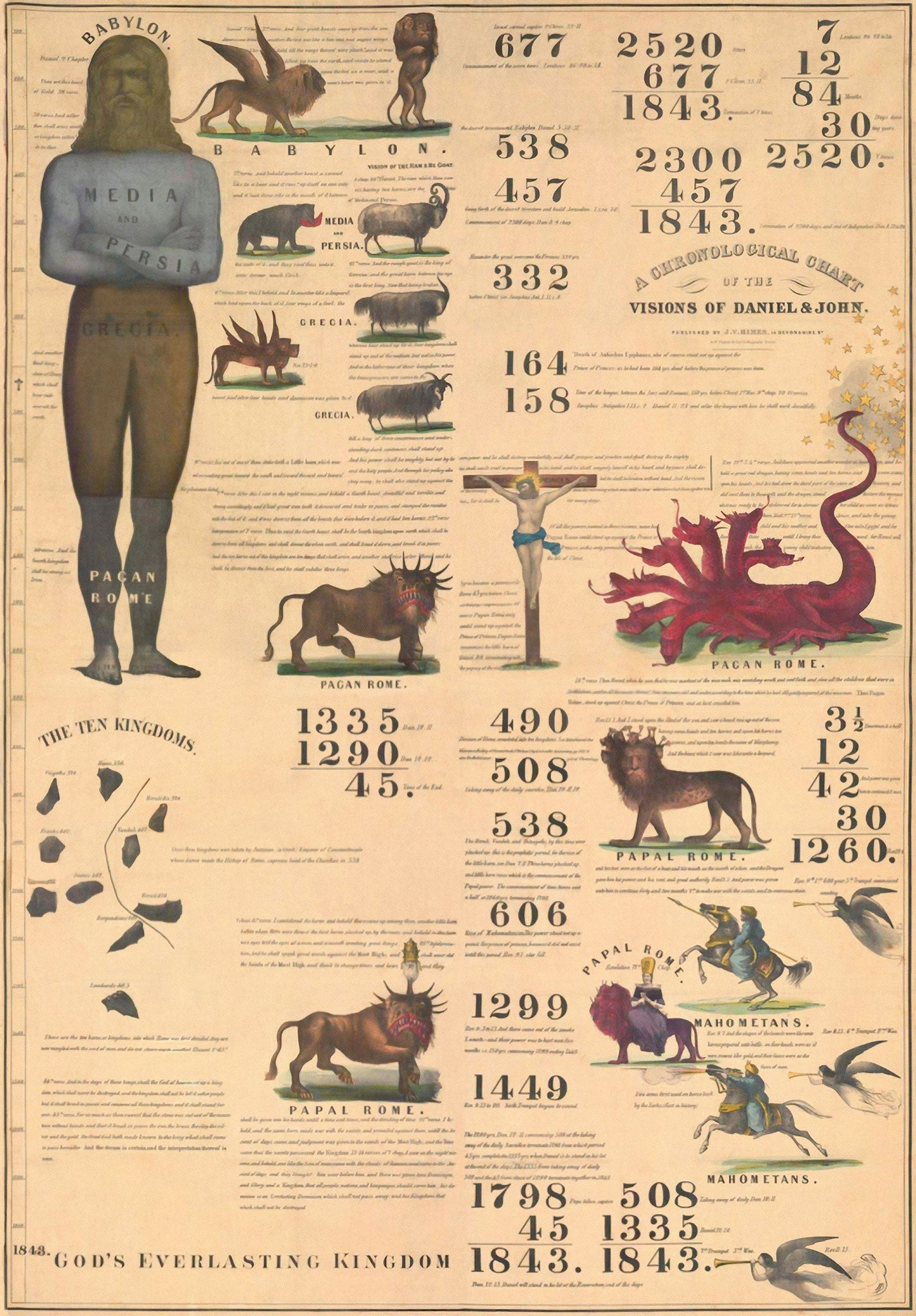Rhodri Marsden's interesting objects: The 1843 Millerite chart

Your support helps us to tell the story
From reproductive rights to climate change to Big Tech, The Independent is on the ground when the story is developing. Whether it's investigating the financials of Elon Musk's pro-Trump PAC or producing our latest documentary, 'The A Word', which shines a light on the American women fighting for reproductive rights, we know how important it is to parse out the facts from the messaging.
At such a critical moment in US history, we need reporters on the ground. Your donation allows us to keep sending journalists to speak to both sides of the story.
The Independent is trusted by Americans across the entire political spectrum. And unlike many other quality news outlets, we choose not to lock Americans out of our reporting and analysis with paywalls. We believe quality journalism should be available to everyone, paid for by those who can afford it.
Your support makes all the difference.* William Miller, a baptist lay preacher from New York, began an intense period of Bible study in 1815. He was looking for clues relating to the Second Coming of Jesus Christ, and in the book of Daniel he found what he was looking for. Chapter 8, Verse 14 reads: "Unto 2300 days, then shall the sanctuary be cleansed". By conveniently interpreting one day to mean one year, Miller calculated that this momentous event was due in 1843.
* In 1833, he started telling people about this, and his ideas quickly grabbed the public imagination. Over the next decade, an estimated five million pieces of Millerite literature were distributed across America and the globe, full of complex maths based upon shaky assumptions. To simplify the sums for the public, Millerite charts were produced, the most iconic of which was hand-painted by Charles Fitch, a minister who would go on to become a noted Millerite leader. The maths is still head-scratching, but the graphic depictions of grotesque beasts from Daniel's visions would sear the date into the minds of the Millerites.
* Miller himself, becoming aware of potential errors in Biblical chronology, avoided giving a precise date, but believed it to be between 21 March, 1843 and 21 March, 1844. As 1843 came and went, Fitch's chart quietly dropped out of circulation; 21 March, 1844 passed without incident, as did a revised date of 18 April, before 22 October – 170 years ago this week – was finally named as the big day.
* Nothing happened. Miller remained convinced that the Second Coming was imminent, but as one Millerite wrote, "our hopes and expectations were blasted". Fitch never lived to see the moment that became known as The Great Disappointment. He'd died a week earlier from pneumonia "contracted after prolonged exposure while baptizing outdoors in cold weather"
Join our commenting forum
Join thought-provoking conversations, follow other Independent readers and see their replies
Comments